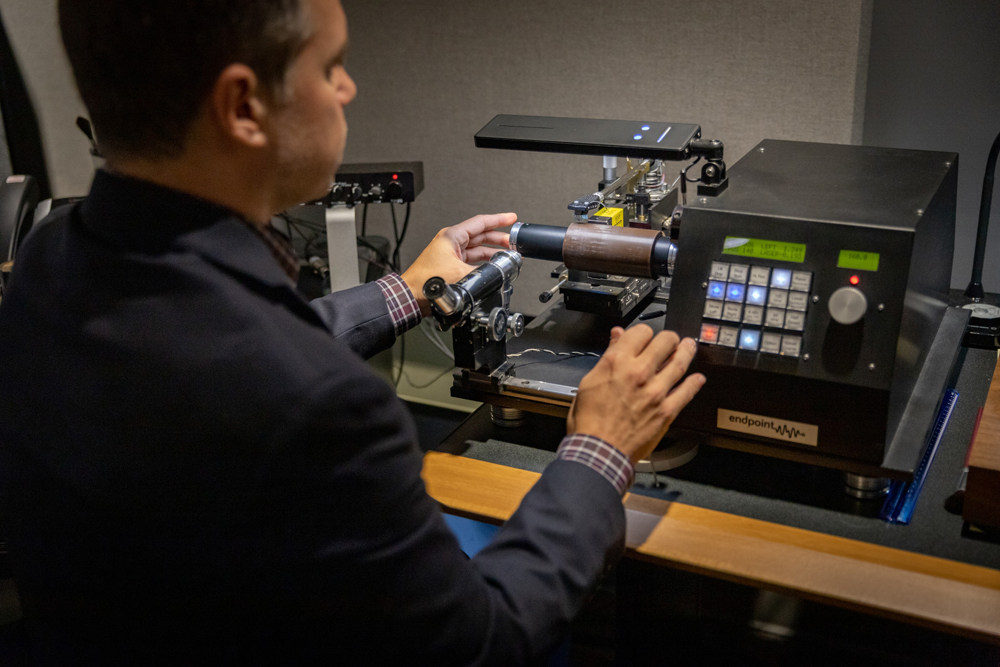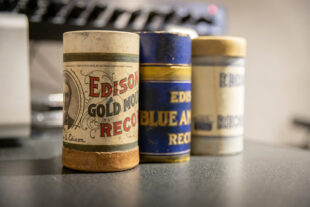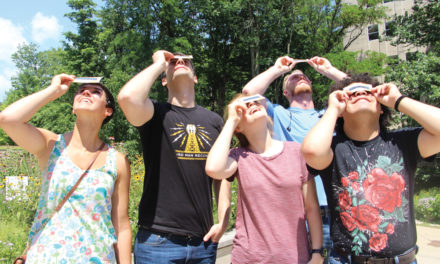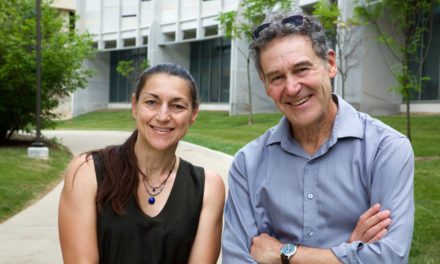
by PETER DORFMAN
Artists, historians, and ordinary folks have been recording sounds—music, speeches, religious rituals, and banal conversations—since the late 19th century. One of the world’s largest repositories of archaic but unique recordings is located at the Scholarly Data Archive at Indiana University.
In 2013, IU allocated $15 million to the Media Digitization and Preservation Initiative (MDPI), and since then has digitized approximately 325,000 significant audio and visual recordings, including 14,000 reels of film. In July 2019, the MPDI completed the digitization of the university’s collection of more than 6,500 wax cylinder recordings.
The brown wax cylinders include Native American ethnographic recordings dating back to the 1890s, as well as the earliest known recordings made in China, from 1901. Others are field recordings from noted ethnologists like Franz Boas, Edward S. Curtis, and George Herzog. Some capture extinct languages. The collection also includes many commercial music recordings.

In addition to cylinders, the collection includes recordings digitized from unique and irreplaceable lacquer disks and other obsolete formats. After digitizing, the original media go into acid-free boxes in a climate-controlled vault.
The MDPI serves 80 different units at IU, including library units and academic departments with interests in media, notes Alan Burdette, director of IU’s Archives of Traditional Music, one of the MDPI’s largest customers.
Individuals with antique disks, cylinders, or tapes may donate certain types of materials to the IU collection. Mass market Enrico Caruso or Fletcher Henderson records are probably already accounted for, but ethnographic recordings are likely to be unique, and IU scholars collect certain rare types of music (including, currently, early Greek-American recordings). Non-commercial field recordings of Indiana material are also of interest.
If you have wax cylinders or lacquer disks, audio preservation engineer Dan Figurelli strongly advises against playing them. “They’re extremely susceptible to cracking or chipping,” he notes. “In some cases, when we digitize lacquer disks, we get only one chance to play them back before they degrade.”
The material is largely catalogued. Public access is still limited, but some content can be heard online. Samples can be found at IU’s Media Collections Online site (media.dlib.indiana.edu/playlists/3261). Special collections with their own sites include one devoted to Orson Welles (orsonwelles.indiana.edu).
For more information or to ask about donating to the collection, contact Alan Burdette at aburdett@indiana.edu.









